 Working in the Deaf community, I’ve noticed a great deal of confusion surrounding the legal rights of the Deaf. Both Deaf and hearing individuals have difficulty understanding what accommodations deaf people are entitled to, and how exactly those needs get met. I recently had a chance to discuss these important issues with Sheryl Eisenberg-Michalowski, who serves as a Deaf legal liaison, and Deaf discrimination attorney Andrew Rozynski, Esq.
Working in the Deaf community, I’ve noticed a great deal of confusion surrounding the legal rights of the Deaf. Both Deaf and hearing individuals have difficulty understanding what accommodations deaf people are entitled to, and how exactly those needs get met. I recently had a chance to discuss these important issues with Sheryl Eisenberg-Michalowski, who serves as a Deaf legal liaison, and Deaf discrimination attorney Andrew Rozynski, Esq.
Deaf Rights
Sheryl Eisenberg-Michalowski — who serves as Deaf Liaison at Eisenberg & Baum Law Center for the Deaf and Hard of Hearing — explains that Deaf persons frequently encounter barriers when trying to protect their rights. Profoundly deaf since birth, Eisenberg-Michalowski has personally witnessed discrimination against deaf individuals from all walks of life, in a wide variety of scenarios. Utilizing her extensive experience, Eisenberg-Michalowski serves as an advocate for deaf, hard of hearing, and deaf-blind individuals; helping people better understand how to protect themselves against discrimination.
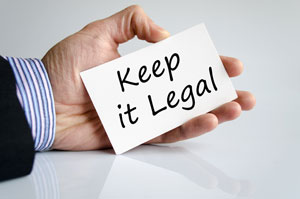 “Imagine yourself as a deaf individual with virtually no knowledge regarding the law. You may have been faced with job discrimination, personal injury, sexual harassment, or denied ASL interpreters for medical care. Obviously, legal assistance is needed, but the lawyer who takes your case may have no knowledge of Deaf culture or the needs of deaf individuals.” Eisenberg-Michalowski explains that many attorneys will take valid discrimination cases, but neglect to provide guidance for their Deaf client. “Without interpreters, clear communication with your lawyer is nonexistent. Where are your rights?
“Imagine yourself as a deaf individual with virtually no knowledge regarding the law. You may have been faced with job discrimination, personal injury, sexual harassment, or denied ASL interpreters for medical care. Obviously, legal assistance is needed, but the lawyer who takes your case may have no knowledge of Deaf culture or the needs of deaf individuals.” Eisenberg-Michalowski explains that many attorneys will take valid discrimination cases, but neglect to provide guidance for their Deaf client. “Without interpreters, clear communication with your lawyer is nonexistent. Where are your rights?
“Over the years, many laws have been passed in order to improve quality of life for deaf individuals,” she continued. “But even with today’s laws, I still see so much Audism– a term meaning the oppression of the Deaf, hard of hearing, and deaf-blind.”
 Andrew Rozynski, a Deaf discrimination litigation attorney and partner at Eisenberg & Baum, LLP, offers some insight into Federal legal obligations to provide reasonable accommodations. Rozynski comes from a Deaf family, and his clientele is almost exclusively deaf. He is one of only a handful of attorneys in the United States who focuses his practice on the protection of Deaf persons rights.
Andrew Rozynski, a Deaf discrimination litigation attorney and partner at Eisenberg & Baum, LLP, offers some insight into Federal legal obligations to provide reasonable accommodations. Rozynski comes from a Deaf family, and his clientele is almost exclusively deaf. He is one of only a handful of attorneys in the United States who focuses his practice on the protection of Deaf persons rights.
“As a Deaf rights attorney, I focus my practice of law on combating discrimination against the Deaf in a variety of settings,” said Rozynski. “Hospitals, government, businesses; these are just some of the areas of everyday life where Deaf people require accommodations.”
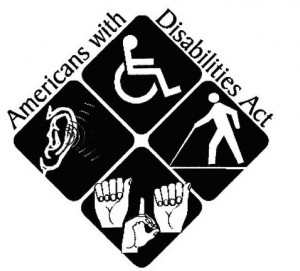 The Americans with Disabilities Act (ADA) requires many public and private entities to provide reasonable accommodations for the Deaf to ensure effective communication. What is a reasonable accommodation varies from situation to situation, and the need for accommodation can be different in each setting. Since each Deaf person has individual needs, determining what accommodation is appropriate can sometimes be confusing. Rozynski offered to elaborate:
The Americans with Disabilities Act (ADA) requires many public and private entities to provide reasonable accommodations for the Deaf to ensure effective communication. What is a reasonable accommodation varies from situation to situation, and the need for accommodation can be different in each setting. Since each Deaf person has individual needs, determining what accommodation is appropriate can sometimes be confusing. Rozynski offered to elaborate:
“Reasonable accommodation is very ‘fact specific,’ which means it is evaluated on a case-by-case basis,” he explained. “It really depends on many factors, however, two important factors that are utilized are: (1) What are the Deaf person’s needs to facilitate effective communication, and (2) The length and complexity of the communication.”
So, how do you know if an interpreter is necessary?
“Assuming the Deaf person uses ASL as their primary form of communication, hospitals are one setting where a qualified sign language interpreter is almost always appropriate because critical communication concerning medical treatment is being conducted. In government settings– such as court proceedings or interviews with the police– interpreters are crucial for effective communication, because ones’ legal rights can be seriously impacted by miscommunication. In the employment setting, having interpreters for business meetings ensures that deaf employees can participate equally in the workplace.”
Rozynski went on to provide further examples. “In the alternative, if you go in to a sandwich shop and request an interpreter, would that be appropriate under those circumstances? Probably not. “
“But, say a Deaf person is looking for a house and needs an interpreter to effectively communicate with the real estate broker. That might be an instance where people don’t know they have the right to request an interpreter. Or if one is getting a mortgage from a bank, that is another instance where a deaf person may be entitled to an interpreter so that they can fully understand the terms of the agreement as explained by the bank”
For brief interactions, like those in retail and restaurant locations, writing notes may be an appropriate option. The amount of information being communicated is often minimal and the content of the communication is simple. However, note writing is not always the solution.
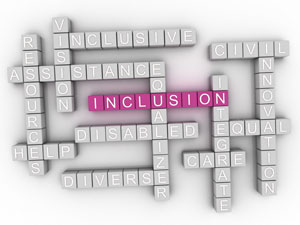 “Sometimes doctors think writing notes back and forth for an appointment is an effective means of communication. It’s often not,” He continued. “Imagine trying to have a 20 minute phone conversation via handwriting. Would you explain yourself just as thoroughly? When people write, they often only give brief summaries of the information they want to convey. Additionally, people whose primary language is ASL may have some difficulty with the English language, making this method ineffective.”
“Sometimes doctors think writing notes back and forth for an appointment is an effective means of communication. It’s often not,” He continued. “Imagine trying to have a 20 minute phone conversation via handwriting. Would you explain yourself just as thoroughly? When people write, they often only give brief summaries of the information they want to convey. Additionally, people whose primary language is ASL may have some difficulty with the English language, making this method ineffective.”
The more critical and complex the communication, and the longer the interaction; the higher likelihood an interpreter will be needed. For example, a business training seminar or disciplinary meeting would both be times where an interpreter is an appropriate accommodation, because the information being relayed to the Deaf individual is very important and specific. ASL interpreters also serve as cultural mediators, bridging any gaps between Deaf and hearing culture so all parties can fully understand the messages being relayed.
“What accommodation is needed, is what provides for effective communication for the Deaf person,” said Rozynski.
One strategy that is being utilized across the country is Video Relay Interpreter (VRI) systems, which provide a professional interpreter through a video connection. “There are a lot of Deaf people who complain that VRI does not provide effective communication because the system will freeze, or not turn on, or staff members who are trying to use the VRI don’t know how to use it. Sometimes the screen is very small, or not suitable for the situation. For example, if someone is giving birth they often cannot look at a tablet off to their bedside. It’s generally not effective. Providing effective communication is key to each situation.”
In the work setting, both employer and employee should work together in an interactive process. The Deaf employee should let their manager know clearly what their communication needs are, and what situations they would like an interpreter for. Employers and places of public accommodation should analyze whether they are truly doing everything possible to ensure the Deaf individual receives equal access to all information being provided by the organization. Deaf parties should be realistic about what accommodations are necessary for each specific situation.
“People often think that they can just refuse VRI without trying it, which isn’t always the case. Often times, people should try VRI if it’s offered. If it is not effective, you have the right to request a live ASL interpreter so that you can be provided effective communication” said Rozynski. VRI, if it works properly, can be a solution for short one-on-one communication—for instance when a hearing employee needs to have a brief conversation with a Deaf coworker. But in situations where there are multiple parties speaking, the information is critical, or where the equipment is not functioning correctly, VRI is usually unable to provide effective communication for Deaf individuals.
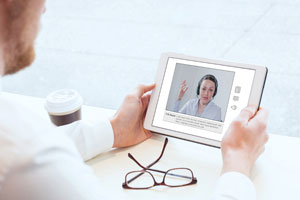 If you are a hearing entity responsible for providing reasonable accommodation, Rozynski has a few tips to ensure you provide equal access. Step one is contacting a reputable interpreting agency. Look for agencies that employ RID Certified interpreters and have a great deal of experience working with Deaf consumers. Businesses should be aware that if a meeting will last more than an hour, depending on the type of meeting, it may be required that 2 interpreters are provided. Also, make your interpreter request as far in advance as possible so that there will be no problems with scheduling, and the interpreter has ample lead time to prepare. Providing a professional interpreter is not optional when it is the only means of providing effective communication for the Deaf individual.
If you are a hearing entity responsible for providing reasonable accommodation, Rozynski has a few tips to ensure you provide equal access. Step one is contacting a reputable interpreting agency. Look for agencies that employ RID Certified interpreters and have a great deal of experience working with Deaf consumers. Businesses should be aware that if a meeting will last more than an hour, depending on the type of meeting, it may be required that 2 interpreters are provided. Also, make your interpreter request as far in advance as possible so that there will be no problems with scheduling, and the interpreter has ample lead time to prepare. Providing a professional interpreter is not optional when it is the only means of providing effective communication for the Deaf individual.
“Using family members or coworkers is also not ok,” he said, unless the coworker is designated by the business entity as a qualified staff ASL interpreter. Otherwise “it’s not appropriate.”
If you are a Deaf person requesting accommodation, Rozynski advises you communicate with a manager and keep a record of your requests. “I always recommend people make their requests in writing, just to be clear that a request has been made. If you still do not get your request for accommodation, I would suggest going up the chain as far as possible. If you still feel like you’re not being provided appropriate accommodations, ask for the reason why.”
Rozynski says that business often claim they are unable to afford sign language interpreters. “This is often disingenuous. Hospitals, banks, and big corporations are often able to pay for an interpreter.” He points out that the ADA looks at the financial strength of the whole organization when considering if an interpreter is cost prohibitive. A large museum, for example, may not refuse to provide an interpreter because it causes them to lose money on a $20 ticket. The same goes for doctors and dentists offices. It is the whole entity that is looked at, not the cost of the individual service provided.
“If you’re an employer or you’re a place of public accommodation, you have an obligation to provide effective communication to that Deaf person. If you do not provide effective communication to a Deaf person, you could potentially be opening yourself up to liability and have a lawsuit that could cost your organization much more than the cost of the interpreting services provided.”
If the Deaf party still feels that equal access is not being provided, that person may have a legal claim.
“I would suggest someone who feels that their rights are violated should contact either an attorney or a local advocacy organization,” advised Rozynski. “Some attorneys do charge to take on discrimination cases; others don’t have any upfront charges and take the case on contingency, which means you don’t pay unless you win or the case settles. Many attorneys offer free consultations, and will let you know whether you have a viable case or not. It is also important to note that all cases have a statute of limitations, so if you feel your rights may have been violated an attorney should be contacted as soon as possible.”
 “I think a lot of people are scared to take this next step because they worry that they will have to pay money to proceed with a lawsuit. Another reason for peoples hesitation is that they might not be comfortable with the legal process. This can be tough for people because they don’t know what to expect. Finding a law firm that a Deaf person can be comfortable with is key. The Deaf public should know that attorneys do have an obligation to provide interpreters– some attorneys are not even aware of that!”
“I think a lot of people are scared to take this next step because they worry that they will have to pay money to proceed with a lawsuit. Another reason for peoples hesitation is that they might not be comfortable with the legal process. This can be tough for people because they don’t know what to expect. Finding a law firm that a Deaf person can be comfortable with is key. The Deaf public should know that attorneys do have an obligation to provide interpreters– some attorneys are not even aware of that!”
Eisenberg-Michalowski adds that Deaf liaisons are also critical to the legal process because they can empower Deaf individuals to actively advocate for themselves. “We have had clients who are shocked at how involved they are in their cases, when compared to their previous law firms. One client told me that his (former) lawyer just made decisions without him. This treatment is a violation of these individuals’ legal rights.”
At the end of the day, most Deaf people do not want to go through a lengthy court battle to get the accommodations they deserve. They just want the equal access they are legally entitled to by the law. Providing reasonable accommodation is not a burden, it should be an expected cost of doing business. Welcoming Deaf individuals into all spaces is not just the law. It’s the right thing to do.
“I think the point is that these discrimination laws were created so Deaf people could equally participate in society,” concludes Rozynski. “It is our obligation, as a whole society, to ensure Deaf people have equal participation and that they can access the same kind of information that hearing people do in any type of setting.”
If you have any further questions, Andrew Rozynski and Sheryl Eisenberg-Michalowski can be contacted at:
Eisenberg & Baum, LLP 24 Union Square East, 4th Floor New York, NY 10003 Voice: (212) 353-8700 Video Phone: (646) 807-4096
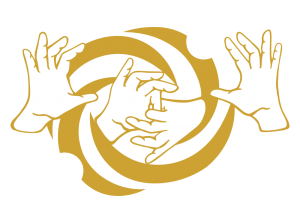



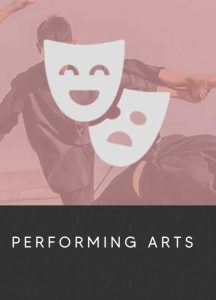

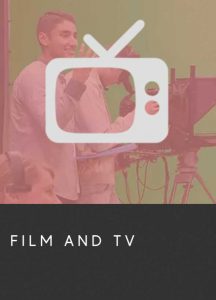





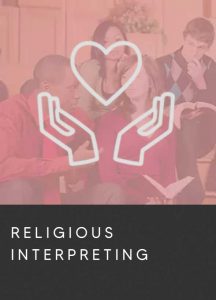
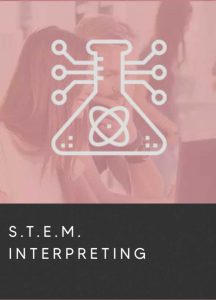
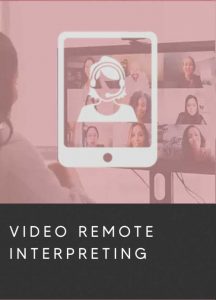
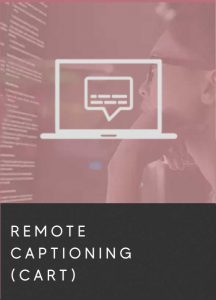

 Applying for jobs can be exciting and nerve-wracking. You revise your resume until it is in top form, hoping your professional skills are strong enough about to be considered for the position. When a company contacts you to schedule a formal interview, gushing about how well qualified you are, they suggest that the job is essentially yours. It seems like everything is going great, right up until you inform the hiring manager that you are deaf and will need a sign language interpreter for the interview. “Oh, we will have to get back to you about that,” they say. But they almost never do.
Applying for jobs can be exciting and nerve-wracking. You revise your resume until it is in top form, hoping your professional skills are strong enough about to be considered for the position. When a company contacts you to schedule a formal interview, gushing about how well qualified you are, they suggest that the job is essentially yours. It seems like everything is going great, right up until you inform the hiring manager that you are deaf and will need a sign language interpreter for the interview. “Oh, we will have to get back to you about that,” they say. But they almost never do. Deaf people have to constantly push back against a society that was not designed for them to succeed. As an interpreter and CODA (Child of Deaf Adults), it can be hard to witness the structural injustice faced by my deaf colleagues and family members on a daily basis. I was recently on an assignment where the deaf consumer shared with me their frustration that the only times they were ever provided an interpreter was when it was absolutely necessary to moving forward on a project. This deaf individual works for a federal agency– an organization with plenty of funding to properly support their employees– yet has to work harder than any of their coworkers just to participate in the workplace.
Deaf people have to constantly push back against a society that was not designed for them to succeed. As an interpreter and CODA (Child of Deaf Adults), it can be hard to witness the structural injustice faced by my deaf colleagues and family members on a daily basis. I was recently on an assignment where the deaf consumer shared with me their frustration that the only times they were ever provided an interpreter was when it was absolutely necessary to moving forward on a project. This deaf individual works for a federal agency– an organization with plenty of funding to properly support their employees– yet has to work harder than any of their coworkers just to participate in the workplace. Respect comes from understanding, from communicating, and from making a person feel appreciated. Before you even interview a deaf job candidate, do a little research on
Respect comes from understanding, from communicating, and from making a person feel appreciated. Before you even interview a deaf job candidate, do a little research on In our current shifting social climate, organizations of all sizes are looking for ways to create workplace diversity. Diversity initiatives might be good intentioned, but many times they are poorly implemented, leaving these minority employees to sink or swim. Supporting deaf staff on an ongoing basis is like providing hardware and software updates, it is like making sure the break room has coffee– it is a crucial part of creating a healthy and functional working environment. It is simple, and the right thing to do.
In our current shifting social climate, organizations of all sizes are looking for ways to create workplace diversity. Diversity initiatives might be good intentioned, but many times they are poorly implemented, leaving these minority employees to sink or swim. Supporting deaf staff on an ongoing basis is like providing hardware and software updates, it is like making sure the break room has coffee– it is a crucial part of creating a healthy and functional working environment. It is simple, and the right thing to do. Working in the Deaf community, I’ve noticed a great deal of confusion surrounding the legal rights of the Deaf. Both Deaf and hearing individuals have difficulty understanding what accommodations deaf people are entitled to, and how exactly those needs get met. I recently had a chance to discuss these important issues with Sheryl Eisenberg-Michalowski, who serves as a Deaf legal liaison, and Deaf discrimination attorney Andrew Rozynski, Esq.
Working in the Deaf community, I’ve noticed a great deal of confusion surrounding the legal rights of the Deaf. Both Deaf and hearing individuals have difficulty understanding what accommodations deaf people are entitled to, and how exactly those needs get met. I recently had a chance to discuss these important issues with Sheryl Eisenberg-Michalowski, who serves as a Deaf legal liaison, and Deaf discrimination attorney Andrew Rozynski, Esq. “Imagine yourself as a deaf individual with virtually no knowledge regarding the law. You may have been faced with job discrimination, personal injury, sexual harassment, or denied ASL interpreters for medical care. Obviously, legal assistance is needed, but the lawyer who takes your case may have no knowledge of Deaf culture or the needs of deaf individuals.” Eisenberg-Michalowski explains that many attorneys will take valid discrimination cases, but neglect to provide guidance for their Deaf client. “Without interpreters, clear communication with your lawyer is nonexistent. Where are your rights?
“Imagine yourself as a deaf individual with virtually no knowledge regarding the law. You may have been faced with job discrimination, personal injury, sexual harassment, or denied ASL interpreters for medical care. Obviously, legal assistance is needed, but the lawyer who takes your case may have no knowledge of Deaf culture or the needs of deaf individuals.” Eisenberg-Michalowski explains that many attorneys will take valid discrimination cases, but neglect to provide guidance for their Deaf client. “Without interpreters, clear communication with your lawyer is nonexistent. Where are your rights? Andrew Rozynski, a Deaf discrimination litigation attorney and partner at Eisenberg & Baum, LLP, offers some insight into Federal legal obligations to provide reasonable accommodations. Rozynski comes from a Deaf family, and his clientele is almost exclusively deaf. He is one of only a handful of attorneys in the United States who focuses his practice on the protection of Deaf persons rights.
Andrew Rozynski, a Deaf discrimination litigation attorney and partner at Eisenberg & Baum, LLP, offers some insight into Federal legal obligations to provide reasonable accommodations. Rozynski comes from a Deaf family, and his clientele is almost exclusively deaf. He is one of only a handful of attorneys in the United States who focuses his practice on the protection of Deaf persons rights. The
The  “Sometimes doctors think writing notes back and forth for an appointment is an effective means of communication. It’s often not,” He continued. “Imagine trying to have a 20 minute phone conversation via handwriting. Would you explain yourself just as thoroughly? When people write, they often only give brief summaries of the information they want to convey. Additionally, people whose primary language is ASL may have some difficulty with the English language, making this method ineffective.”
“Sometimes doctors think writing notes back and forth for an appointment is an effective means of communication. It’s often not,” He continued. “Imagine trying to have a 20 minute phone conversation via handwriting. Would you explain yourself just as thoroughly? When people write, they often only give brief summaries of the information they want to convey. Additionally, people whose primary language is ASL may have some difficulty with the English language, making this method ineffective.” If you are a hearing entity responsible for providing reasonable accommodation, Rozynski has a few tips to ensure you provide equal access. Step one is contacting a reputable interpreting agency. Look for agencies that employ RID Certified interpreters and have a great deal of experience working with Deaf consumers. Businesses should be aware that if a meeting will last more than an hour, depending on the type of meeting, it may be required that 2 interpreters are provided. Also, make your interpreter request as far in advance as possible so that there will be no problems with scheduling, and the interpreter has ample lead time to prepare. Providing a professional interpreter is not optional when it is the only means of providing effective communication for the Deaf individual.
If you are a hearing entity responsible for providing reasonable accommodation, Rozynski has a few tips to ensure you provide equal access. Step one is contacting a reputable interpreting agency. Look for agencies that employ RID Certified interpreters and have a great deal of experience working with Deaf consumers. Businesses should be aware that if a meeting will last more than an hour, depending on the type of meeting, it may be required that 2 interpreters are provided. Also, make your interpreter request as far in advance as possible so that there will be no problems with scheduling, and the interpreter has ample lead time to prepare. Providing a professional interpreter is not optional when it is the only means of providing effective communication for the Deaf individual. “I think a lot of people are scared to take this next step because they worry that they will have to pay money to proceed with a lawsuit. Another reason for peoples hesitation is that they might not be comfortable with the legal process. This can be tough for people because they don’t know what to expect. Finding a law firm that a Deaf person can be comfortable with is key. The Deaf public should know that attorneys do have an obligation to provide interpreters– some attorneys are not even aware of that!”
“I think a lot of people are scared to take this next step because they worry that they will have to pay money to proceed with a lawsuit. Another reason for peoples hesitation is that they might not be comfortable with the legal process. This can be tough for people because they don’t know what to expect. Finding a law firm that a Deaf person can be comfortable with is key. The Deaf public should know that attorneys do have an obligation to provide interpreters– some attorneys are not even aware of that!” New York City has so many incredible Summer street festivals, art exhibits, and cultural events to enjoy. Now, imagine how many shows you would go to if you had to contact the event organizers weeks in advance, explain that you need special accommodations, and possibly even explain how to secure those resources. This is the burden placed on deaf people every time they want to attend and event, and it is a far cry from equal access.
New York City has so many incredible Summer street festivals, art exhibits, and cultural events to enjoy. Now, imagine how many shows you would go to if you had to contact the event organizers weeks in advance, explain that you need special accommodations, and possibly even explain how to secure those resources. This is the burden placed on deaf people every time they want to attend and event, and it is a far cry from equal access. Organizer’s work long and hard to ensure their events are successful, but somewhere along the way they come to the conclusion that providing deaf access is a choice. We live in one of the most diverse countries on the planet, with laws that specifically protect the deaf and hard of hearing, but still excuses are made to exclude interpreters from event budgets. Without considering how challenging this makes it for deaf people to ever show up on a whim, event planners make the assumption that deaf attendees will always go through the steps to identify themselves and their needs.
Organizer’s work long and hard to ensure their events are successful, but somewhere along the way they come to the conclusion that providing deaf access is a choice. We live in one of the most diverse countries on the planet, with laws that specifically protect the deaf and hard of hearing, but still excuses are made to exclude interpreters from event budgets. Without considering how challenging this makes it for deaf people to ever show up on a whim, event planners make the assumption that deaf attendees will always go through the steps to identify themselves and their needs. The
The  When interviewing for a job, you only get one chance at a good first impression. You try to wear the right clothes, mentally prepare, and hope you have all the right answers. But what if none of that mattered? What if you didn’t get the job because of the color of your eyes? Or because you were too tall? In 2014, this kind of hiring discrimination might sound absurd, but for deaf job candidates it is a difficult reality.
When interviewing for a job, you only get one chance at a good first impression. You try to wear the right clothes, mentally prepare, and hope you have all the right answers. But what if none of that mattered? What if you didn’t get the job because of the color of your eyes? Or because you were too tall? In 2014, this kind of hiring discrimination might sound absurd, but for deaf job candidates it is a difficult reality.
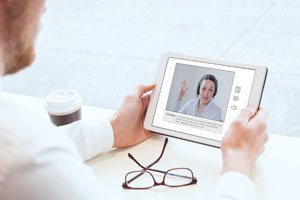

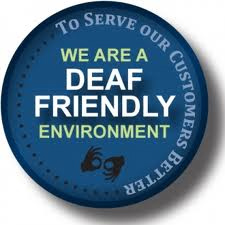 Sure, each person may feel overwhelmed in the face of unequal access, but we have the power to create subtle societal shifts. We have the power to complain to the manager each and every time captioning is not provided when it should be. Until one day, that manager complains to his boss and so on. We have the power to write to our local lawmakers about tax money funding organizations that do not serve the deaf. Until one day, they see how important that is to all of us, and require equal access. We have the power to start the snowball rolling down the hill, and we should not be shy about using it! Equality does not exclude race or gender or religion or ability, or it is not equality. Period.
Sure, each person may feel overwhelmed in the face of unequal access, but we have the power to create subtle societal shifts. We have the power to complain to the manager each and every time captioning is not provided when it should be. Until one day, that manager complains to his boss and so on. We have the power to write to our local lawmakers about tax money funding organizations that do not serve the deaf. Until one day, they see how important that is to all of us, and require equal access. We have the power to start the snowball rolling down the hill, and we should not be shy about using it! Equality does not exclude race or gender or religion or ability, or it is not equality. Period.




